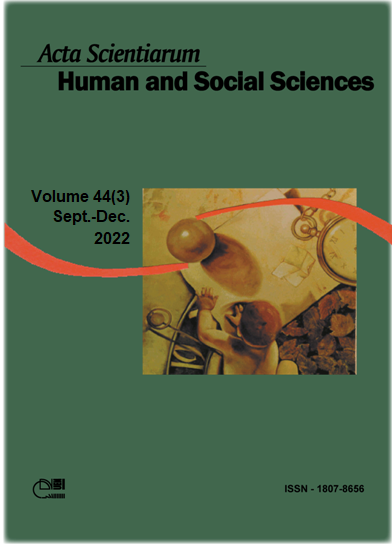A teoria pragmática da observação: a incomensurabilidade ontológica feyerabendiana
Résumé
Este artigo aborda o conceito de incomensurabilidade teórica dentro do contexto da filosofia da ciência, com uma atenção especial à perspectiva ontológica proposta por Paul Feyerabend. Nosso propósito central reside em oferecer uma análise da proposição feyerabendiana, destacando a inviabilidade de explicações e reduções em teorias de caráter geral ou não diretamente aplicáveis. Feyerabend sustenta a tese de que tanto as teorias de redução de Nagel quanto o modelo explicativo desenvolvido por Hempel e Oppenheim não encontram consonância com as práticas científicas contemporâneas nem com um entendimento empiricamente justificável. O autor argumenta que a transição de uma teoria para outra transcende a mera adoção de conceitos suplementares, englobando transformações de ordem linguística, teórica e ontológica. A substituição de uma estrutura teórica por outra pode acarretar modificações significativas na correspondência de significados entre os termos utilizados e na configuração geral do paradigma científico do pesquisador. No entanto, é pertinente observar que a teoria da incomensurabilidade enfrenta críticas consideráveis, especialmente no que tange aos aspectos linguísticos e teóricos, muitas vezes relegando a segundo plano sua dimensão ontológica. Este artigo proporciona uma introdução abrangente tanto às críticas de natureza teórico-linguística quanto à noção de incomensurabilidade em si, ao mesmo tempo em que defende, de maneira mais ampla, a relevância da interconexão ontológica entre diferentes teorias científicas.
Téléchargements
DECLARAÇÃO DE ORIGINALIDADE E DIREITOS AUTORAIS
Declaro que o presente artigo é original, não tendo sido submetido à publicação em qualquer outro periódico nacional ou internacional, quer seja em parte ou em sua totalidade.
Os direitos autorais pertencem exclusivamente aos autores. Os direitos de licenciamento utilizados pelo periódico é a licença Creative Commons Attribution 4.0 (CC BY 4.0): são permitidos o acompartilhamento (cópia e distribuição do material em qualqer meio ou formato) e adaptação (remix, transformação e criação de material a partir do conteúdo assim licenciado para quaisquer fins, inclusive comerciais.
Recomenda-se a leitura desse link para maiores informações sobre o tema: fornecimento de créditos e referências de forma correta, entre outros detalhes cruciais para uso adequado do material licenciado.


























